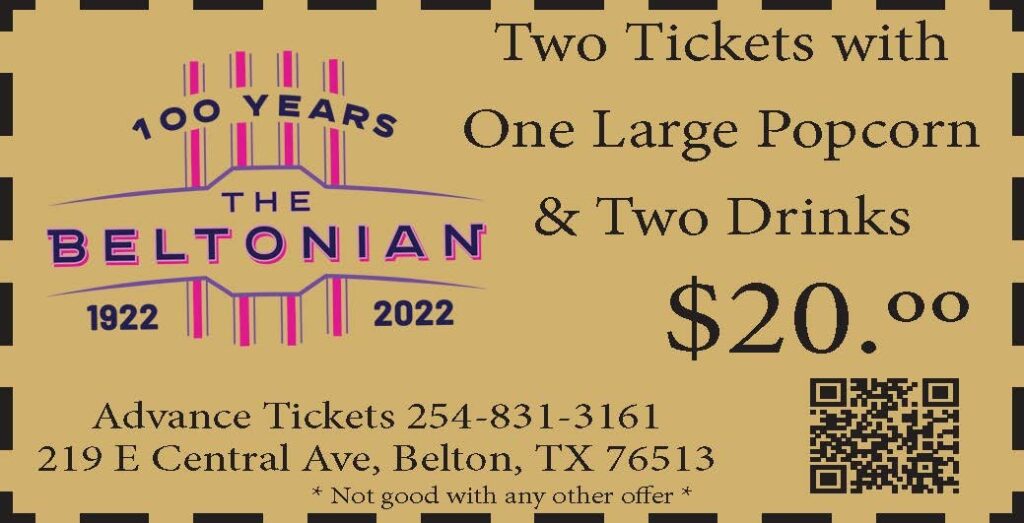By: Wes Riddle and Susan Kolodziejczyk
More than 80 years ago a much-loved company commander with the 36th infantry division was killed in action during World War II. Waskow was just 25 years old when he died, and his men were visibly moved. On the night of December 14, 1943, they took the body of Captain Henry T. Waskow of Belton, Texas down San Pietro Hill, Italy on the back of a mule. The moment is immortalized in words by the famed war correspondent Ernie Pyle, who witnessed the grim moonlight procession and wrote about it in a column. Pyle’s column, as well as circumstances surrounding the Battle of San Pietro became the basis for a famous film called “The story of GI Joe,” which appeared in movie theaters the summer of 1945. The Beltonian Theater in downtown Belton ran the movie for the first time in August 1945. Robert Mitchum played the role of Henry Waskow, who was given a different name at the army’s insistence. Waskow is “Lieutenant Bill Walker “in the film.
Waskow is buried in an Allied cemetery in Italy, but a revered marker bears his name on a plot in the North Belton Cemetery. Belton New Tech High School @ Waskow and the Henry T Waskow VFW Post #4008 in Belton are both named after the real GI Joe. Waskow is uncommonly “memorialized” therefore, for himself certainly but also as an archetype for every American infantryman. When we think of him, we know for sure that he was brave, had grit and determination, cared for his buddies and the men he led. In death he tells us a lot. In life, one wonders if he would have told us even more by way of deeds or career; or sterling example; or through progeny had he survived the war to marry. Even so, he left us with a note about life with uncommon advice in it on how to live – ironically it was his last letter home and his official Will and Testament.
Here are some things he mentions. First, all of us should want to live but be willing to die for how we want to live. That is to say, notwithstanding the ultimate sacrifice, that sacrifice is a living thing, and that life involves it. It would be foolhardy to want to die and thus avoid the sacrifice required of us in living right. He says we ought to live in and for this country, the United States of America as if we would die for it every day. There’s just not a lot of room in that characterization for couch potatoes, dropouts, people who are lackadaisical, oblivious, morose or unconcerned! Henry, or “Snort” (his nickname for accidentally swallowing some corn liquor) would have us care deeply and work hard in all our various capacities and stations – personally, professionally, and as church and community members and citizens of the state and nation.
Second, Waskow says life should be spent in service to others in defense of the oppressed. His personal code is clearly chivalric. He says that he aspired to lead but also to sacrifice for those whom he led. He refers to the men under his charge as “magnificent Americans” and relates how he has striven to be worthy of their trust and the trust of the nation placed in him to lead them. He says leadership involves strength, character and courage, and he recommends those who pray to pray for their leaders. In his case, he refers to the several times he asked his family to pray in regard to his capacity as a leader, in order to gird him with the needed qualities in abundance to be a better leader, in order to better serve his men. Notice he did not ask for prayers to relieve him of a single iota of responsibility. “Snort” wants us to be strong, to build an evince character, to show courage in the face of adversity and to lead if and when we are called.
Third, Waskow understands life to be quintessentially a matter of choice. He takes his stand willingly and so accepts whatever consequences that come. He interprets his life in a way that is empowering, refusing to regret. After all, he chose his responsibility. Indeed, he expects all free men and free women to do the same, even when choices are hard. His were also hard. He did not start the war, but he volunteered for the armed forces. He did not want to die, but he chose to fight and keep his country free and his friends and family safe. He characterizes his choices as a service to the cause, but he inclusively leaves room for every one of us to choose the same thing – even if our capacities and stations are quite different at work or on the home front. We are all brothers and sisters in arms so to speak, if and when we serve the righteous cause together. When you “remember me”, he says, “remember me as a fond admirer of all of you, for I thought so much of you and loved you with my with all my heart.” My wish for all of you is that you get along well together and prosper – not in money – but in happiness, for happiness is something that all the money in the world can’t buy. Try to live a life of service – to help someone where you are or whatever you may be – take it from me, you can get happiness out of that, more than anything in life. Waskow must have had a deep and abiding sense of satisfaction even on the day he died, because he died as he chose to live. We remember him this Veteran’s Day and hope to honor him by our living.



















